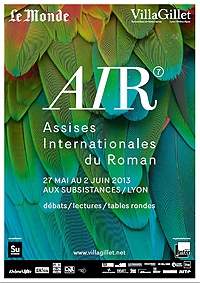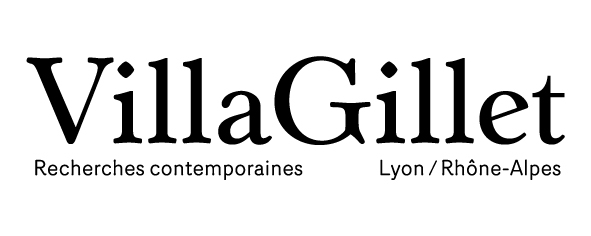«The Speckled People» - a conversation with Hugo Hamilton
![[title-image]1332154745618[/title-image] all rights reserved](https://cle.ens-lyon.fr/anglais/images/hamilton_1370859969345-jpg)
Hugo Hamilton was born in Dublin in 1953 to a German mother and an Irish-nationalist father who insisted the children speak only German or Irish at home; English was strictly forbidden.
A talented journalist, Hamilton quickly turned to writing short stories and novels, but had to wait for the publication of The Speckled People (Femina foreign novel prize, 2004, Phébus) – in which he recounts his childhood in post-war Dublin, his stormy relationship with his father, and his very unique perception of his mother tongues – to be recognized as one of his country’s greatest authors.
La Mémo library (Oullins) invites Hugo Hamilton for a discussion hosted by Kouadio N'Duessan (Université Jean Monnet-Saint-Etienne). The event was developed in association with two classes of the Parc Chabrières highschool (Oullins), under the supervision of Emilie Michaux and Isabelle Bowley.
Transcript of the conversation (29/05/2013)
Kouadio N'Duessan: Do you believe that writing is a way to apprehend and understand the world?
Hugo Hamilton: Somebody mentioned the word confusion. That is probably the word that describes my childhood most clearly. It was a confusion of languages, confusion between the inside of the house and the outside of the house, confusion between my father’s idealism and my mother’s memories. There’s always been confusion in my life. The only way I have of solving that confusion is by writing about it, by explaining it. I only became a writer very late in my life. That confusion existed up to the time I wrote The Speckled People. It was only by writing that book that I could almost step out of that confusion of my childhood. The only palce where the confusion doesn’t exist is actually in the book. When I step away from the book, when I walk down the street, I’m still as confused as ever. Somebody mentioned that my home is my writing and that’s very true. That is the only time I feel in any way that I escaped confusion of memory and of where I want to be. It’s in my writing that I escape from that. That’s the reason why I write. When I was in my twenties, I thought the best thing to do would be to go to America and completely escape from my family, not to ever have to talk about it. But it didn’t work. I always went back to Ireland and I always confronted my childhood and my family life. I knew very well that you can’t hide from your own life. You can’t escape from your memory. Your memory will come after you.
Kouadio N'Duessan: Do you believe, as Paul Ricoeur did, that our identities and our existences are a fabric made of narratives? Do you rehabilitate yourself, your childhood and your memory by writing?
Hugo Hamilton: That’s vey true, you ARE your memories. I also think that your memory keeps changing. I’ve just written a new book where one character is in a state where hismemory keeps changing and he has to keep up with it. When I was a teenager, I didn’t know what to remember, I didn’t know what was important to remember. In fact I was very good at forgetting. I trained myself to forget. It’s only later on that you realise what you need to remember. It’s only later on that when you start looking back, you know what you want to remember.
Kouadio N'Duessan: Do you write to make your existence more intense or do you use memories to reach a form of forgetting?
Hugo Hamilton: I’ve tried different ways of forgetting my story. I won’t mention them all, they’re not good for you! For a good while I was a musician. I played Irish music and I travelled around Europe. I thought that was a good way of forgetting things. But you can’t escape from your story. I tried very hard but I became a very introverted and silent person. When you try to forget very difficult things in your memory, you also suppress all the good things.
Kouadio N'Duessan: You grew up in a very complex linguistic background, between an Irish father and a German mother. Do you consider language as a means of communication or something inherent to identity?
Hugo Hamilton: It is both. I always have to remember that I speak English most of the time. It’s the language that was forbidden to me as a child. So effectively I’m living in a foreign language. It’s almost like a fictional language. It’s as if I lived a version of myself that’s made up. That’s perhaps the story of all my characters and all the people I know. We are walking novels, we make up our lives out of what we remember.
Kouadio N'Duessan: Do you think that families are narratives? What is the place of the traditional family structure in your fiction?
Hugo Hamilton: My parents met in Dublin. Like all parents they were very idealistic. They were in love. They thought they were doing something very interesting and beautiful. They had no idea of what we as children would feel about it. I’m a parent myself and I feel the same. I feel I was very idealistic. You can never predict what your own children are going to remember.
Question from the audience: When and why did you decide to write that book through a child’s vision? Was it a form of therapy for you?
Hugo Hamilton: I don’t know about you but I come from a generation that completely mistrusts the word therapy. It sounds like you’re trying to fix something and I don’t think I can be fixed. I think writing is a much more profound way of dealing with things that are in the back of your mind. I don’t think therapies can fix people, I think writing can. I think writing can take your memory to somewhere else. You can make something constructive; you can make a piece of art out of it, even if you’re still confused and not fixed afterwards. At least you have a book. What does a therapist give you? Only a bill!
Question from the audience: Was your mother still alive when you wrote The Speckled People?
Hugo Hamilton: No she wasn’t. I think it would have been impossible to write the book with my mother or father still alive. When I wrote this book I had to turn my parents into fictional people, it’s the only way I can get enough distance. But she comes to life in the book. I couldn’t have had it both ways; writing the book with my mother still alive.
Pour citer cette ressource :
Hugo Hamilton, Kouadio N'Duessan, The Speckled People - a conversation with Hugo Hamilton, La Clé des Langues [en ligne], Lyon, ENS de LYON/DGESCO (ISSN 2107-7029), juin 2013. Consulté le 13/02/2026. URL: https://cle.ens-lyon.fr/anglais/litterature/entretiens-et-textes-inedits/the-speckled-people-a-conversation-with-hugo-hamilton



 Activer le mode zen
Activer le mode zen

